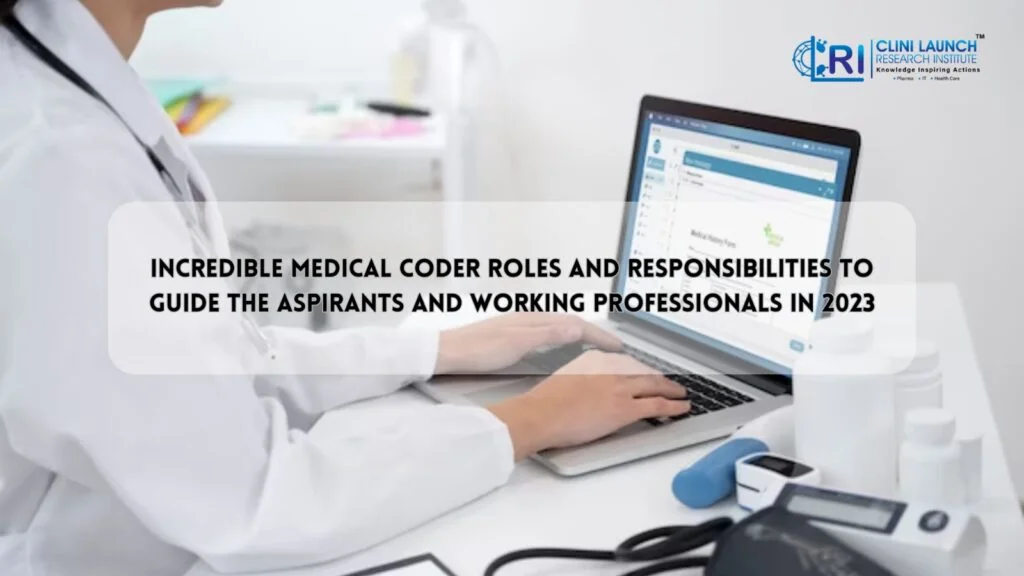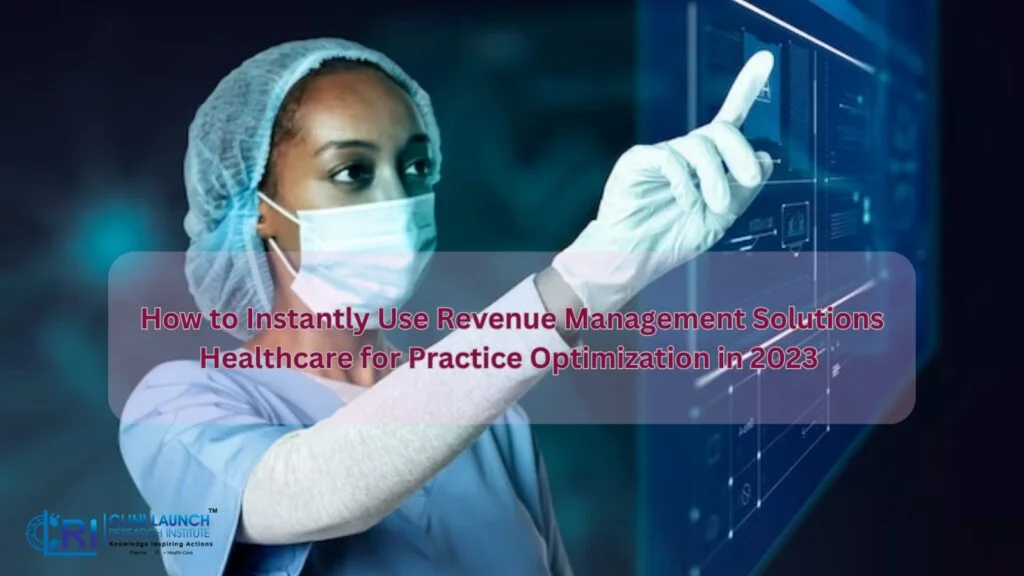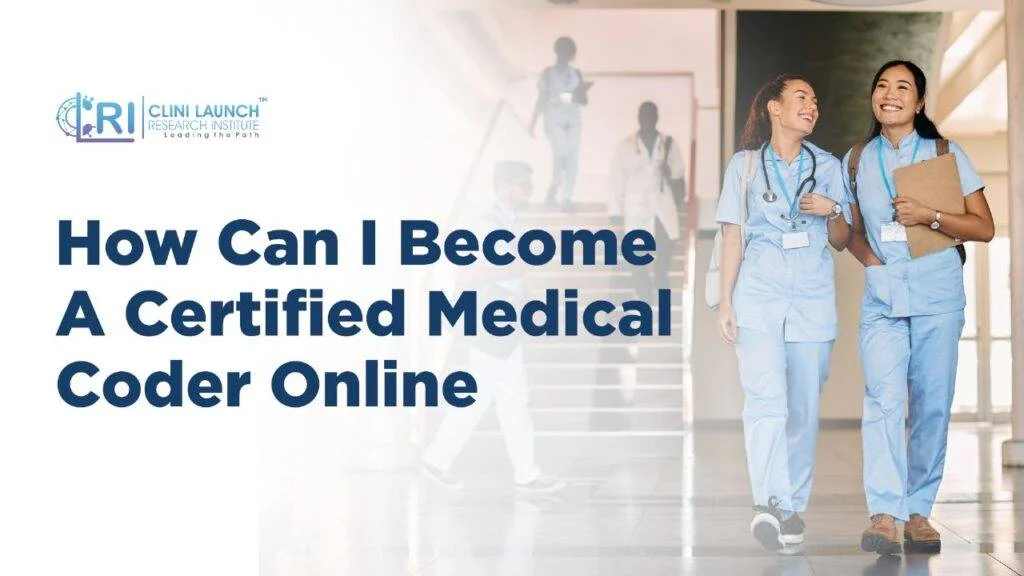Incredible Medical Coder Roles and Responsibilities To Guide the Aspirants and Working Professionals in 2023

Medical coding is a vital process in the healthcare industry that involves translating patients\’ records into standardized codes for billing and data analysis. Medical coder roles and responsibilities are based on the tasks performed by assigning codes to each patient encounter\’s diagnoses, procedures, treatments, and outcomes. Medical coders play a crucial role in ensuring the quality and efficiency of healthcare services by: In this blog, we will explore the roles and responsibilities of medical coders, the skills and qualifications they need, and the benefits and challenges they face in their careers. Medical Coder Roles and Responsibilities Medical coders are responsible for reviewing and analyzing patients\’ medical records and documents to extract relevant information for coding purposes. Medical coder roles and responsibilities are to use various coding systems, such as the Healthcare Common Procedure Coding System (HCPCS), Current Procedural Terminology (CPT), International Classification of Diseases Tenth Revision Clinical Modification (ICD-10-CM), Ambulatory Payment Classifications (APC), Diagnosis Related Groups (DRG) or American Society Anesthesiologists (ASA) to assign codes to each service or procedure performed by the healthcare provider. To ensure that the codes what do medical coders make is assign accurate, complete, consistent, and compliant with the coding guidelines and policies of the government, insurance companies, and other regulatory bodies. They may also perform chart audits, quality checks, data validation, training and education, and reporting functions as part of their duties. Medical coders work in various healthcare settings, such as hospitals, clinics, nursing homes, rehabilitation centers, insurance companies, consulting firms, or independent contractors. They may specialize in certain areas of medicine and serves everyone based on medical coder job duties, such as surgery, radiology, cardiology, oncology, or pediatrics. They may also work with different medical records, such as electronic health records (EHR), paper-based or hybrid ones. Click Here to Unlock the Door to a Promising Medical Coding Career Complexity: Medical coding is a complex process that involves applying multiple codes from different systems to each patient encounter. Medical coders must be familiar with various coding rules, guidelines, and policies that may change frequently due to updates or revisions. Pressure: Medical coding is a time-sensitive task that requires speed, accuracy, and quality. Medical coders must meet deadlines and productivity standards while ensuring their codes are correct and compliant. In that condition, what do medical coders do is to face audits or reviews from internal or external parties that may affect their performance or reimbursement. Communication: Medical coding requires effective communication skills to interact with healthcare professionals. Medical coders must clarify information with physicians or other providers when there are discrepancies or missing details in the documentation. They may also need to explain or justify their codes to billers, auditors, or insurance companies when there are disputes or errors. Conclusion Medical coding is an important process that impacts the quality and efficiency of healthcare services. They assign codes to patients\’ records based on their diagnoses, procedures, treatments, and outcomes. Medical coder roles and responsibilities must have skills and qualifications in medical terminology, coding systems, software, rules, and regulations. Medical coding offers many benefits, such as high demand, flexibility, variety, satisfaction, and challenges like complexity, pressure, and communication. Medical coding is a rewarding career for those who enjoy working with data, technology, and healthcare.
How to Instantly Use Revenue Management Solutions Healthcare for Practice Optimization in 2023

As a healthcare provider, you know how challenging it can be to manage your revenue cycle efficiently and effectively with revenue management solutions healthcare. It would help if you dealt with complex billing processes, changing regulations, multiple payers, claim denials, patient collections, etc. All these factors can affect your cash flow, profitability, and patient satisfaction. That is why you need revenue management solutions healthcare that can help you streamline your revenue cycle and improve your financial performance. Revenue management solutions (rms) electronic payment platform is typically an actionable business solution that ends all nightmares of administrative and financial situations. They are designed to automate and optimize your revenue cycle processes, from patient registration to payment collection. This blog post will explain revenue management solutions, revenue cycle steps, how they work, and how you can use RMS in healthcare to optimize its practices. What Are Revenue Management Solutions Healthcare? Revenue management solutions are software tools or services that help you manage your revenue cycle more efficiently and effectively. They can help you with various aspects of your revenue cycle, such as: The Revenue management solutions healthcare can also provide analytics and reporting capabilities that help you measure and improve your revenue cycle performance. You can access real-time data and insights on key metrics, such as days in accounts receivable (A/R), denial rate, collection rate, net revenue per visit, etc. You can also benchmark your performance against industry standards and identify areas of improvement. Learn How to Use and Optimize Revenue Management Solutions For Healthcare What Are Healthcare Cycle Steps In Medical Billing The healthcare revenue cycle steps manage and optimize the financial processes associated with providing healthcare services to patients. They include: These steps ensure that healthcare providers receive timely and accurate service payments and maintain a healthy cash flow. They also help to improve patient satisfaction and loyalty by providing transparency and convenience in billing and payment processes. How Do Revenue Management Solutions Work? Revenue management solutions healthcare work by integrating with your existing practice management system (PMS) or electronic health record (EHR) system. They can be cloud-based or on-premise software tools you install on your devices or servers. Alternatively, they can be outsourced services that you hire from a third-party vendor. The Revenue management solutions Healthcare works by automating and optimizing your revenue cycle processes using advanced technologies, such as artificial intelligence (AI), machine learning (ML), natural language processing (NLP), optical character recognition (OCR), etc. They can also leverage data from various sources, such as payer websites, clearinghouses, banks, etc., to provide you with accurate and timely information. Revenue management solutions work by providing you with a user-friendly interface that allows you to access and manage your revenue cycle data and workflows. Customizing your preferences and healthcare settings will be easier based on your goals and objectives. You can also receive alerts and notifications when there are any issues or opportunities in your revenue cycle. Learn How to Use and Optimize Revenue Management Solutions For Healthcare How to Use Revenue Management Solutions to Optimize Your Healthcare Practice To use revenue management solutions to optimize your healthcare practice, you need to follow some steps: Following these steps, you can use revenue management solutions to optimize your healthcare practice and achieve your financial goals. Conclusion Revenue management solutions are a powerful tool that can help you streamline your revenue cycle and improve your financial performance. The revenue management solutions healthcare can help you automate and optimize your revenue cycle, from patient access to payment collection. They can also provide analytics and reporting capabilities that help you measure and improve your revenue cycle performance. Contact us today for a reliable and effective revenue management solution with Clini Launch Research Institute for your healthcare practice. We have over 15 years of experience providing revenue management solutions healthcare providers of all sizes and specialties. We can help you choose the best solution for your practice and implement it seamlessly in your workflow. We can also provide ongoing support and maintenance services to ensure optimal results. Learn How to Use and Optimize Revenue Management Solutions For Healthcare
3 Ultimate List on How Many Types of Medical Coding Are There and Their Applications

Introduction Medical coding is the process of translating medical information into standardized codes that can be used for billing, reporting, and analysis. So, it is essential to ensure accurate and efficient reimbursement, compliance, and quality of care. But did you know there are different types of medical coding, and each has its purpose and application? In this blog post, we will explore how many types of medical coding are there and how they are used in various healthcare settings. Crack the Code to a Rewarding Career: Enroll in Our Medical Coding Course Now! The Three Main Types of Medical Coding If you were looking for how many types of medical coding are there, here is the answer. There are three types of medical coding: diagnostic coding, procedural coding, and pharmaceutical coding. Each type of coding uses a different system of codes to represent different aspects of medical care. Diagnostic Coding Diagnostic coding is the type of coding that assigns codes to diagnoses, signs, symptoms, and other clinical findings. The diagnosis-related group is called DRG modifiers codes that are used to describe the reason for a patient’s visit, the condition or problem that the patient has, and the outcome or result of the treatment. Diagnostic codes are also used for epidemiological purposes, such as tracking the prevalence and incidence of diseases, identifying health trends, and monitoring public health issues. Now the question where is ICD used? One of the most widely used systems of diagnostic codes is the International Classification of Diseases (ICD), maintained by the World Health Organization (WHO). The ICD is updated periodically to reflect the latest advances in medicine and health. The current version is ICD-10, which has more than 70,000 codes. Crack the Code to a Rewarding Career: Enroll in Our Medical Coding Course Now! Procedural Coding Procedural coding is the type of coding that assigns codes to medical procedures, services, and interventions. Procedural codes document what was done to or for the patient during a visit, such as tests, surgeries, therapies, or consultations. Procedural codes are also used for billing purposes, as they determine how much a provider will be paid for performing a certain service where a CPC is needed. Now, what does CPC stand for in medical coding? The answer to this is a certified professional coder, a gold standard for medical coding generally needed in the physician’s office settings. Procedural codes also help to measure the quality and efficiency of care, as they indicate the type and level of service provided. The most widely used system of procedural codes is the Current Procedural Terminology (CPT), maintained by the American Medical Association (AMA). The CPT has more than 10,000 codes that cover various categories of medical services, such as evaluation and management, anesthesia, surgery, radiology, pathology, and medicine. Pharmaceutical Coding Pharmaceutical coding is the type of coding that assigns codes to drugs, medications, and biological products. Pharmaceutical codes identify the name, strength, dosage form, route of administration and manufacturer of a drug or product. Pharmaceutical codes are also used for pharmacovigilance purposes, such as detecting adverse drug reactions, monitoring drug safety and efficacy, and preventing medication errors. The most widely used system of pharmaceutical codes is the National Drug Code (NDC), maintained by the Food and Drug Administration (FDA). The NDC has a 10-digit format that consists of three segments: Other Types of Medical Coding In addition to the three main types of medical coding mentioned above, some other types are used for specific purposes or settings, which is what you are looking for. How many types of medical coding are there in the healthcare industry? Some examples are: HCPCS Level II Codes These alphanumeric codes supplement the CPT codes for certain items and services that CPT does not cover. These include durable medical equipment (DME), prosthetics, orthotics, supplies, drugs administered by injection or infusion, ambulance services, and some Medicare services. ICD-10-PCS Codes These alphanumeric codes are used for inpatient hospital procedures in the United States. They are more detailed and specific than CPT codes and cover various aspects of a procedure, such as body system, body part, root operation, approach, device, and qualifier. SNOMED CT Codes These alphanumeric codes are used for clinical terminology in electronic health records (EHRs). They are more comprehensive and granular than ICD codes and cover various concepts such as anatomy, diseases, procedures, findings, substances, and organisms. LOINC Codes These alphanumeric codes are used for laboratory tests and clinical observations in EHRs. They cover various attributes such as analyte, method, specimen, scale, and units. CDT Codes These are alphanumeric codes that are used for dental procedures and services. They cover various categories such as diagnostic, preventive, restorative, endodontic, periodontic, prosthodontic, oral surgery, orthodontic, and adjunctive services. Therefore, you know how many types of medical coding are there and their different types. Now, we are moving forward with the benefits of medical coding. Crack the Code to a Rewarding Career: Enroll in Our Medical Coding Course Now! The Benefits of Medical Coding Medical coding has multiple benefits for both providers and patients. Some of these benefits are: Accurate and timely reimbursement: Medical coding ensures that providers get paid correctly and promptly for their services by reducing billing errors, denials, and audits. Compliance and quality: Medical coding helps providers comply with various rules and regulations set by government agencies, insurance companies, and accreditation bodies. It also helps providers measure and improve their quality and performance by providing data and feedback on their outcomes and processes. Communication and coordination: Medical coding facilitates communication and coordination among different healthcare professionals and settings by providing a common language and standard for documenting and exchanging medical information. Research and innovation: Medical coding supports research and innovation by providing data and insights on various aspects of healthcare, such as epidemiology, public health, clinical trials, health economics, and health informatics. Crack the Code to a Rewarding Career: Enroll in Our Medical Coding Course Now! Conclusion Medical coding is a vital part of the healthcare industry that
Medical Professional Coder Programs: A Career Path with High Demand and Growth

Introduction Suppose you seek a rewarding career in professional coder programs in the healthcare industry that does not require direct patient care. In that case, consider becoming a medical coder. Medical coders assign standardized codes to medical services and procedures physicians and other healthcare providers perform. These codes are used for billing, reimbursement, quality improvement, and research. Medical coding is vital to the healthcare revenue cycle, ensuring that providers get paid accurately and timely for their services. Why is medical coding important in healthcare because it helps patients understand their medical bills and insurance claims. Moreover, medical coding contributes to the advancement of medical science, as it provides valuable data for epidemiological studies, clinical trials, and public health initiatives. In this blog, we will explore what medical coders do, what skills and qualifications they need, what types of medical professional coder programs are available, and the benefits of pursuing a career in medical coding. What do medical coders do? Medical coders review medical records and documentation from various sources, such as electronic health records (EHRs), physician notes, laboratory reports, radiology images, and operative reports. The role of medical coder is to identify the diagnoses, treatments, procedures, and outcomes of each patient encounter and assign appropriate codes using standardized classification systems. Crack the Code to a Rewarding Career: Enroll in Our Medical Coding Course Now! The most commonly used coding systems are: Medical coders must follow specific coding guidelines and rules to ensure accuracy and consistency. They must also keep up with the changes and updates in the coding systems and regulations. Medical coders may work in various settings, such as hospitals, clinics, physician offices, insurance companies, or coding outsourcing firms. Crack the Code to a Rewarding Career: Enroll in Our Medical Coding Course Now! What skills and qualifications do medical coders need? Medical coders need technical and soft skills to perform their job effectively. Some of the essential skills that should match with what is the role of medical coder are: Anatomy and physiology Medical coders must understand the human body and its functions to assign accurate codes to different medical conditions and procedures. Medical terminology Medical coders must be familiar with the medical terms and abbreviations used in the healthcare industry to interpret the documentation and communicate with other professionals. Coding systems Medical coders must master the coding systems and guidelines for their specialty or domain. They must also know how to use coding software and tools to facilitate their work. Crack the Code to a Rewarding Career: Enroll in Our Medical Coding Course Now! Attention to detail Medical coders must be meticulous and precise when assigning codes, as any error or omission can severely affect the provider’s reimbursement or the patient’s claim. Analytical thinking Medical coders need to be able to analyze complex information from various sources and make logical decisions based on coding rules and standards. Problem-solving Medical coders need to be able to resolve any discrepancies or issues that may arise during the coding process. They also need to be able to research and validate their codes using reliable resources. Communication Medical coders must communicate clearly and professionally with other healthcare professionals, such as physicians, nurses, billers, auditors, and managers. They also need to be able to explain their codes and rationale to patients or insurance representatives if needed. Ethics Medical coders must adhere to their profession’s ethical principles and standards. They must respect the confidentiality and privacy of the patient’s information and comply with the laws and regulations that govern medical coding. As a volunteer, you need a high school diploma or equivalent certification in to become a medical coder. However, most employers prefer a post-secondary education program in medical coding or a related field candidates. These programs can range from certificate courses to associate or bachelor’s degrees. They usually cover anatomy and physiology, medical terminology, pharmacology, pathophysiology, health information management, coding systems, reimbursement methods, compliance issues, and computer applications. In addition to formal education, you may also need to obtain a professional coder programs certification from a recognized organization such as Clini Launch Research Institute (CLRI), accredited by IAO (International Accreditation Organization) and NSDC (National Skill Development Corporation). These certifications validate your knowledge and skills in medical coding and demonstrate your competence and credibility to potential employers. Some of the standard certifications for medical coders are: Certified Professional Coder (CPC): This certification covers coding for services performed by physicians and other providers in various settings, such as outpatient clinics or ambulatory surgical centres. Certified Coding Specialist (CCS): The certification in coding specialist covers coding for services performed by providers in hospital-based settings such as inpatient wards or emergency departments. Physician based Certified Coding Specialist (CCS-P): This certification covers a range of coding performance based on the physician services in office-based settings such as in group or private services. Certified Outpatient Coder (COC): This certification covers coding for services performed by providers in outpatient hospital settings such as outpatient departments or observation units. Certified Inpatient Coder (CIC): This certification covers coding for services performed by providers in inpatient hospital settings such as acute care or long-term care facilities. To obtain these certifications, you must pass an exam that tests your knowledge of coding systems, guidelines, regulations, anatomy, physiology, medical terminology, reimbursement methods, ethics, and other relevant topics. You may also need to meet specific eligibility criteria such as education, experience, or membership requirements. To maintain your certification status, you must comply with the continuing education units (CEUs) requirements and adhere to the code of conduct of your certifying organization. What are the benefits of pursuing a career in medical coding? Medical coding is a career path with high demand and growth potential. According to the U.S. Bureau of Labor Statistics (BLS), the employment of medical records and health information technicians, which includes medical coders, is projected to grow 8% from 2019 to 2029, much faster than the average for all occupations. The growth in
Why You Should Focus on Improving Medical Coding Is Good Career

The everlasting demand for careers in healthcare medical coding is good career industry is increasing. According to the Bureau of Labor Statistics, healthcare is one of the fastest-growing industries, with a 16% growth that will anticipate 2.6 million new jobs between 2020 and 2030. If you want to pursue a career in the healthcare industry or its related field but also want to work in an administrative role involving computers, data entry, and codes where a medical coding course is the correct choice for you. The role of medical coders is to create and maintain electronic health records following guidelines that protect patients privacy. Medical coders translate patient diagnosis and codes procedure into a computer system. Medical coding best course typically works with physicians, billers, reimbursement, quality improvement, and other healthcare personnel, ensuring accurate claims and costs. Medical coding is an essential part of the healthcare industry, offering multiple benefits to those wanting to pursue medical coding as a career. These are some reasons why you should focus on improving your medical coding skills and knowledge: It is a growing career According to Ambition Box, prediction based on medical records and health information technicians from 2020-2030 was 9%, and the median annual wage in 2018 was ₹2,00,000. Medical coding is one of the most growing careers for multiple reasons. As a career prospect, the expectations of medical coders may increase over the sizeable ageing population that needs to be served by the healthcare industry. The turning point of technology is also changing medical coding is good career with an increased focus on digitizing medical health records. Medical coders have the advantage of technological changes with their implementation ensuring an increase in efficiency and accuracy. Make a Difference in Healthcare: Join our Medical Coding Course Now You can get started quickly The aspirants or candidates who want to pursue their careers in medical coding assume that it takes years to start a career in the healthcare sector, but it is not always the case. At Clini Lauch Research Institute, you can complete your medical coding diploma within a few months. With Clini Launch Research Institute medical coding online program, where multiple dates are available, you will have the flexibility and convenience to start whenever and wherever you want your potential to be administered. After completing the medical coding course for beginners program, you will be eligible for certification in medical coding from the Clini Launch Research Institute- CLRI. Working in your chosen career makes you eligible for advanced medical healthcare business roles such as medical coder, medical writing, medical auditing, compliance documentation improvement, and another job, according to CLRI. Different work environments Medical coders are one of the most essential parts of the healthcare industry. With a degree or diploma in medical coding, you can work in various healthcare settings, including doctor’s offices, nursing homes, hospitals, home healthcare, and outpatient facilities. Therefore, medical coders work closely with other healthcare professionals, but that does not mean they only have to work with healthcare facilities. However, a few medical coding jobs for beginners have the option to work from home as there are multiplier positions available for WFH. Still, if the medical coder is fresher, they might have to work from the office. To work in a different environment, you need to build work experience before you have the option to work from home. Make a Difference in Healthcare: Join our Medical Coding Course Now Consistent work schedule There is multiple healthcare career that offers regular business hours for medical coders. However, medical coders generally work 40 hours a week in most organizations in the healthcare sector. They have to work occasionally or overtime in healthcare facilities. High Demand and Growth Potential The increase in demand for medical coders is expected to grow from 2019 to 2029 is 8%, which is much faster than the average for all professions. This is due to the increasing number of health services, the ageing population, and the adoption of electronic health records (EHR). Medical coders can find employment opportunities in various settings, such as health systems and hospitals, physician practices, ambulatory care centers, insurance companies, government agencies, and consulting firms. Medical coding is a good job that can also work remotely or as a freelancer, offering flexibility and convenience. Competitive Salary and Benefits The median annual average medical coder salary for freshers in India is INR 2.0 lakhs. The compensation can vary depending on experience, education, certification, location, and employer. Medical coders with more years of experience and higher levels of certification can earn up to INR 15 lakhs per year. Medical coders can also enjoy health insurance, retirement plans, paid leaves, bonuses, and incentives. Make a Difference in Healthcare: Join our Medical Coding Course Now Professional Development and Recognition Medical coding is a dynamic and evolving field that requires constant learning and updating of skills and knowledge. However, medical coding is good career that can enhance career prospects by obtaining certifications from recognized organizations such as the Clini Launch Research Institute Medical Coding (CLRIMC). These certifications demonstrate proficiency and expertise in various aspects of medical coding, such as anatomy, physiology, medical terminology, coding guidelines, compliance, and ethics. Medical coders can join professional associations and networks to access resources, training, mentoring, and recognition. Personal Satisfaction and Contribution Medical coding is a rewarding career that allows you to use your analytical, technical, and communication skills to impact the healthcare industry positively. By ensuring accurate and timely coding of medical records, you help patients receive proper reimbursement for their services, providers optimize their revenue cycle management, insurers process claims efficiently, and researchers analyze health data for quality improvement. Medical coding also offers a sense of personal satisfaction by challenging you to solve problems, learn new things, and grow professionally. Make a Difference in Healthcare: Join our Medical Coding Course Now Conclusion In conclusion, medical coding is good career choice for anyone interested in the
Unlocking a Bright Future: How Can I Become a Certified Medical Coder

Medical Coding is one of the most essential parts of the healthcare industry. You might have asked yourself- How can I become a certified medical coder? Medical Coding is one of the most highly specialized fields requiring professionals with a deeper understanding of anatomy, medical terminologies, and physiology. Medical Coding involves the translation of diagnoses, medical procedures, and other healthcare services into standard codes. These standardized codes are then used for insurance and billing purposes. Are you interested in pursuing a course and searching for how can I become a certified medical coder online? At Clini Launch Research Institute, you will get all the solutions. This blog post will teach you how to become a certified medical coder. These are the steps given below: Step 1: Choosing the right kind of certification First, you must choose the right certification program to become a certified medical coder. Clini Launch Research Institute is a medical Coding training institute in Bangalore that offers medical coding certifications. Clini Launch Research Institute provides multiple training courses based on tailored specifications such as basics/advanced/premium, individual programs, and online/offline courses. The training in Clini Launch Research includes Medical Coding in CPC, Certification in Medical Coding, and an Advanced Diploma in Medical Coding. However, each organization offers different certifications. That is why it is vital to research the options to choose the viable certification that fits your career goals best. For example, suppose you are interested in working in a hospital setting. In that case, you need to consider the Certification in Coding Specialists (CCS) offered by CLRI. Similarly, you want to work in an outpatient or physician’s office. In that case, you may need certification as a certified professional coder (CPC) offered by CLRI. Click here for certification Step 2: Training program Completion Once you have chosen your certification program suitable for your career goals, the next step is to complete the certification program. However, you have several options for your course curriculum. You can choose the options for training programs, online classes, in-person courses, or self-study programs. Clini Launch Research Institute offers three types of certification with different medical coding course duration and fees in Bangalore. The course duration for medical Coding for CPC training is two months with a fee of Rs. 34999. However, the course duration of the second-course medical coding certification is three months, charging Rs. 44999. Moreover, the duration of an advanced diploma in medical Coding is six months with a fee of Rs. 79999, including GST. Nowadays, multiple candidates choose online classes because they need flexible schedules. Online courses consist of recorded lectures, quizzes, and interactive exercises. However, in-person classes are also available, allowing you to interact with highly qualified instructors and candidates. Self-study programs designed for the curriculum will enable you to work and learn independently. Before choosing your training program, ask yourself how can I become a certified medical coder. It would be best to ensure that a valid organization accredits the course. The organization ensures that the accredited program has been reviewed and meets the education and training standards. Step 3: Experience Once you complete the training program, you need to gain practical experience in the Medical Coding field. Multiple certification programs require experienced candidates before you take a certification exam. You will gain some experience by working in healthcare organizations or settings such as a physician’s office, hospital, an insurance office. As a candidate, if you need help finding a job in the medical Coding area, consider an internship in some organizations that offer internships to fresher candidates in Medical Coding. By pursuing a certification program in a clinical research organization, you will know how I can become a certified medical coder. You will gain valuable insights and experience by considering volunteer work or internship and making connections within the medical industry. Click here for Certification Step 4: Certification Exam Preparation After gaining some necessary experience in the medical Coding area, you need to prepare for the exam for certification. The medical Coding exam certification will test your physiology, medical terminology, and anatomy knowledge. By pursuing medical coding program at Clini Launch Research Institute with medical coding course duration and fees in Bangalore, you can move forward in a suitable way with your career. In the medical Coding certification exam, you must also show your ability to code for diagnoses and medical procedures accurately. When it comes to resources, you will have multiple resources available to help you with exam preparation. You might get several resources for medical Coding training centers in Bangalore. However, at CLRI, you will get everything in one place. At Clini Launch Research Institute, you will get help with exam preparation, including practice exams, online courses, and study guides. The certification exam preparation kits can help you create a study plan that will work best. Step 5: Take the certification exam To become a certified medical coder, is to take the certification exam. The certification examination is typically administered online and consists of multiple-choice questions. As a candidate, you will have a fixed time to complete the exam, which you must have to achieve a passing score. You will gain certification as a medical coder from Clini Launch Research Institute by getting a passing score. If you fail the first exam, you need not be discouraged. You can retake the same exam after a certain period. After your first approach, you will get ample time to study and prepare for the following certification exam. Passing the certification exam will earn you the credential to be a Certified Professional Coder (CPC) or Certified Coding Specialist (CCS). Conclusion In Conclusion, becoming a certified medical coder is a viable option for candidates pursuing a medical coding career. To know the answer to how can I become a certified medical coder, you should have the relevant background. Generally, it requires a basic understanding of medical coding practices and their principles. However, completion of an accredited online medical Coding training program, gaining practical experience, and getting certified


